-
Is Now the Time to Replace Your Water Heater?
While your water heater is designed to last for years, there will eventually come a time when you need to schedule a water heater installation with your plumber. In this video, you will learn some signs that it’s time to replace your water heater. If your water heater is leaking, or unable to produce hot water, you will want to contact your plumber serving Jacksonville.
A certified plumber can help you pick out an efficient new hot water heater to replace your old unit. By scheduling water heater replacement before your system fails entirely, you can avoid a serious plumbing emergency in your home. Your new water heater may also be able to help you save on your monthly bills.
-
Are You Flushing Away Money on Your Water Bill with an Old Toilet?
There are many ways to identify how to save money in your home, such as identifying how old your toilets are. Even though your toilet is meant to last several years with minimal toilet repairs or changes in water usage, it will be less efficient than modern toilets designed to use less water with every flush. Read on to see if your old toilets or frequent toilet repairs near Jacksonville are costing you more money than they should.
Toilets that are more than 30 years old should be replaced with new and more efficient models. Newer toilets can use less than two gallons of water every time you flush, but older toilets may use up to seven gallons a flush. By upgrading to a new toilet, you could save up to five gallons of water usage every time you go to the bathroom. This savings will soon show in your monthly water bills, and you will pay off your new toilet within a few months. Also, consider installing a new unit if you are frequently calling a plumber for toilet repairs. By reducing the number of toilet repairs, you can save money and water usage.
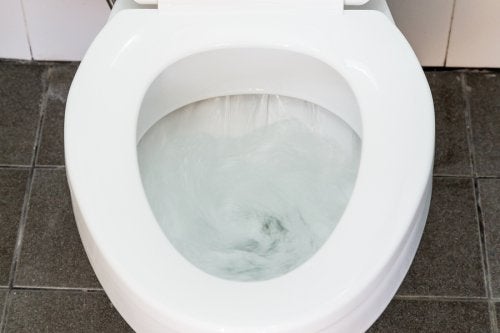
-
The Homeowner’s Guide to Water Heaters
Your home’s water heater is among its most critical plumbing appliances. Whenever you turn on the tap and hot water flows out of your pipes, it will have been generated through the power of your water heating system. During a kitchen remodel or home building project, you will need to choose the right water heater for your home. Our expert plumbers in Jacksonville can help you decide whether a tankless water heater or conventional unit will be the best choice for your family’s lifestyle. If you are gearing up for a water heater installation, here is an essential guide to what you need to know about these plumbing appliances.
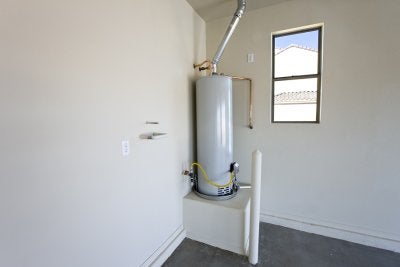
Types of Water Heaters
When you are shopping for a new water heater, you will have a few different types of units to choose from. Conventional water heaters hold a large quantity of hot water in an insulated tank. If you already rely on a conventional water heater, you may want to choose this type of unit for your house. Tankless water heaters, by contrast, heat water through an inline system, without the need for a storage tank.
Your home’s water heater is among its most critical plumbing appliances.
You will have many factors to consider when you choose a new water heater for your property. For example, you will want to make sure that your water heater is large enough to supply hot water to all of your plumbing fixtures simultaneously. Additionally, it is a great idea to shop for a water heater that is compact and energy efficient.
Signs You Need a New Water Heater
Water heater replacement is a major procedure for any household. When your water heater needs to be replaced, you will notice several signs and symptoms. A water heater that is about to fail may produce strange banging and clanking noises. You may also see water leaking from beneath your tank. Finally, any signs of corrosion around the tank could indicate that you are ready to start shopping for a new unit.
-
Signs That Now Is the Time for a New Water Heater
Your water heater is responsible for providing you with heated water for all of your daily activities. When you start to notice that your hot water heater is no longer providing you with clean, clear hot water, it may be time to start talking to your plumber about a water heater replacement. A plumber serving Jacksonville can help you choose the perfect new hot water heater for all of your plumbing needs. To help you decide when it is time to call your plumber, here is a look at some top signs that your existing unit is reaching the end of its life.
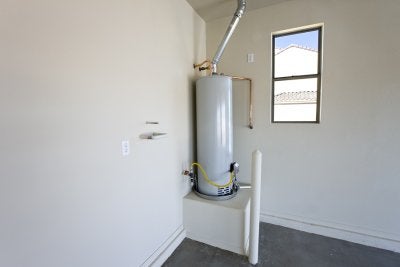
Aging Unit
One of the main signs that your water heater is ready for replacement is when you discover that your unit is reaching the end of its usable lifespan. Typically, hot water heaters will remain in operable condition for up to 10 years after they are installed. If you are wondering whether your unit is ready to be replaced, you can check the date code that is printed on the tank.
Discolored Water
Another sign that your hot water heater is ready for replacement is when you start to notice that the water coming from your pipes is dirty or discolored. If a water heater develops corrosion or sediment in its tank, these contaminants may start affecting your home’s hot water supply. By replacing your water heater with a brand new unit, you can restore the clarity and safety of your hot water.
Unusual Sounds
In order to decide when it is time to replace your hot water heater, you may also want to be on the alert for any unusual sounds that may be coming from your tank. As sediment builds up on the bottom of your tank, it may begin to form a hardened layer. Since your water heater will have to work harder to generate heated water, it may begin to make unusual clanking or banging noises. If you notice any of these sounds, you should be sure to schedule a water heater replacement right away.
-
Myths About Tankless Water Heaters
If you need new water heater installation near Jacksonville, you may be wondering which type to choose. To ensure that you select the best option for your home and needs, consider these common tankless water heater myths before you make a decision.
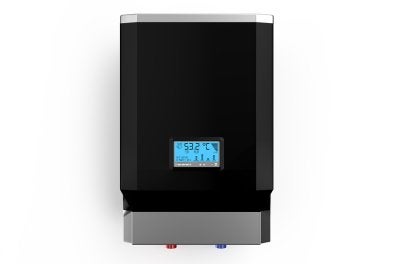
Myth #1: There is little difference between tankless water heaters.
Over the years, these water heaters have benefited from technological advances that make some of them more reliable, cost-effective, or easy to install. Because some brands have adopted newer equipment while others haven’t, not all tankless water heaters are of the same quality. You’ll find that some brands boast greater reliability and firepower, while others will lack in the areas of product support and upkeep costs.
Myth #2: You can switch to a tankless water heater without an inspection or permit.
While this is true for some areas, it’s not a blanket truth. Your jurisdiction may require both a permit and an inspection before you install your new water heater. To find out more, talk to a local and reputable HVAC company to learn about the requirements for changing to a tankless water heater.
Myth #3: Making the switch to a tankless water heater is simple.
The fact that changing your water heater type is not so easy to accomplish may have something to do with the truth behind myth #2. Unfortunately, most homes were installed with conventional water heaters without any plans to accommodate a tankless system. Your home’s gas line, meter, and piping must be of sufficient size to handle the greater requirements of a tankless water heater. A successful installation is essential for ensuring optimal performance from a tankless water heater.
Myth # 4: It’s expensive to operate a tankless water heater.
Tankless water heaters can potentially save you money on your energy costs. Conventional water heaters must keep a sizeable container of water heated throughout the day and night, even if it isn’t in use. Tankless water heaters warm water only on demand, potentially saving you money on your monthly energy bill.
-
Keeping Calcium Off Your Faucets
Over time, calcium deposits will build up on your faucets, causing plumbing problems and necessitating plumbing repairs near Jacksonville . You can reduce your need for frequent plumbing repairs by preventing calcium buildup from occurring in the first place. For instance, your plumber can install a water softener to reduce the natural minerals present in your water supply.
Watch this video for some great tips for keeping calcium off of your water faucets. A calcium buildup can cause low water pressure, damaged water appliances, and water leaks. If you have a minor calcium buildup, you can soak your faucet aerator in white vinegar for one to three days. For extreme calcium buildups, a plumber may recommend that you use muriatic acid to clean off the calcium deposits. Once you and your plumber remove the calcium deposits, your faucets will produce a much stronger water flow.
-
Save Money and the Environment at the Same Time
By now, you’re probably well aware of what it means to go green. As a homeowner, it’s sensible to make eco-friendly choices when it comes to your home. Not only are energy-efficient appliances and fixtures good for the environment, but they also can save you a lot of money on your monthly energy bills. Here are some good reasons to make environmentally conscious decisions regarding your home’s plumbing. For more information, contact Eagerton Plumbing in Jacksonville today.
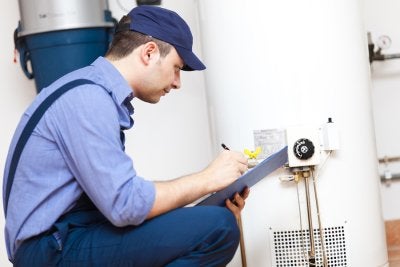
Upgrade Your Old Hot Water Heater
An appliance in the home that uses a lot of energy is your hot water heater. The most common type of water heater found in homes is a standard storage-tank model—a large cylindrical unit that houses a reservoir of heated water that’s constantly kept at a set temperature. Older storage-tank water heaters tend not to be as energy efficient as newer models, which are insulated and have better water-heating capabilities. If your current water heater has been running for 10 years or more, consider upgrading to an insulated storage-tank water heater, a solar-powered unit, or a tankless water heater.
Switch to Water-Saving Toilets and Bathroom Fixtures
Conventional toilets are water wasters—the amount of water used with each flush tends to be excessive and unnecessary. Energy-efficient toilets use water sparingly when flushed, and many offer innovative flushing technologies that can effectively accommodate both liquid and solid waste accordingly. If you’re planning a bathroom remodel, opt for a dual-flush toilet. Also, replace dated faucets and showerheads with fixtures that have aerating mechanisms. By adding air to water, aerators create the sensation of strong water pressure while using very little water.
Insulate Your Pipes
By insulating your home’s plumbing pipes, you can rest assured that your water is kept either warm during the cold months or cool during the summer for a longer period of time—lessening or eliminating the need to use more energy to heat or cool the water in your pipes.
-
Signs of a Hidden Plumbing Leak
A hidden plumbing leak can cause serious damage to your home if it is left untreated. Water damage is one of your home’s worst enemies. For example, a small water leak behind your wall may result in the need for costly drywall repair. Some common plumbing repair issues that could result in a hidden leak include leaky toilets, dripping faucets, or a broken water main. If you notice mold or excessive moisture in your home, these symptoms could be a sign of a hidden leak. With plumbing repairs from an experience plumber, you can ensure that your home is protected against the dangers of a hidden leak. A company offering plumbing repair in Jacksonville can provide you with a full range of top quality services, including water heater repairs and much more. To take a closer look at the importance of home plumbing services, watch this video from Angie’s List.
RECENT POSTS
categories
- Uncategorized
- Water Heater Installation
- Tankless Water Heater
- Plumbing Services
- Bathroom Remodeling
- Hot Water Heater
- Plumber in Jacksonville
- Water Heater Repair
- Eagerton Plumbing
- Eco-Friendly Plumbing Repair
- Water Damage
- Plumbing Leak
- Sewer Line Repair
- Infographic
- Clogged Drains
- Kitchen and Bathroom Remodel
- Bathroom Plumbing
- Residential Plumbing Services
- Garbage Disposal
- Toilet Repair
- Water Heater Replacement
- Water Conservation
- Emergency Plumbing
- Commercial Plumbing Services
- Kitchen Design Inspiration
- Kitchen Remodel
- low-flow toilets
- Leaky Faucet
- Conserve Water
- Drain Pipes
- Kitchen Sinks
- Vessel Sink
- Plumbing Problems
- Water Leak
- Commercial Remodeling Contractors
- Drain Cleaning Services
